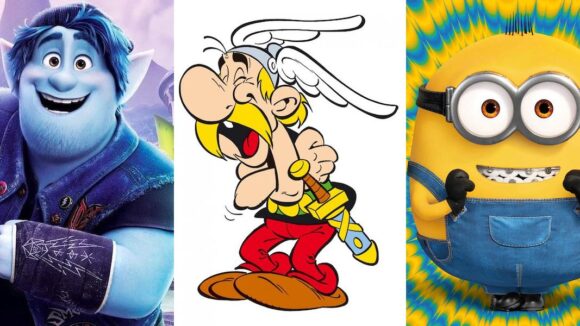

Industry Wrap-Up: A Look At What Happened In Animation In March 2020
Welcome to the first in Cartoon Brew’s new series of monthly wrap-ups. At the end of every month, we’ll take a look back at the major trends and events that shaped the animation world in that time, and summarize them in bite-sized paragraphs (with plenty of links to our recent coverage).
What a month we’ve picked to start with. The animation industry, along with much of the world, has been upended in the last 30 days. The coronavirus has sown anxiety and confusion, but also sparked ingenuity and mutual support. It has changed the way films are produced, distributed, and exhibited — for now at least.
It’s strange to think that Western society was still functioning more or less as normal at the start of March, as political leaders completely failed to grasp the seriousness of the situation. It’s also easy to forget that, even since the virus began its rampage, things unrelated to it have continued to happen throughout the animation world. What follows is, in our view, a representative overview of the big stories in the industry this month.
The coronavirus has disrupted film production. Most animation studios in affected countries have switched to a work-from-home setup in the interests of public health, although vfx shops have been slow to do the same. Software developers have responded by extending free remote licenses to clients. Even so, some projects have been derailed: Illumination’s Minions: The Rise of Gru was pulled from its July 3 release after the studio revealed that it wouldn’t finish the film in time. To what extent the animation industry can weather the crisis will become clear in the coming months.
The coronavirus has also transformed distribution and exhibition. For the first time in our lifetimes, U.S. theaters shut down completely, and many other territories have done the same. Distributors have scrambled to adapt. Some films, like Pixar’s Onward, have been fast-tracked to an online release. In an unprecedented move, Universal announced that Trolls: World Tour would be released simultaneously online and (where possible) theatrically; cinema owners were furious. Meanwhile, festivals cancelled or postponed upcoming editions, with some opting to stage online screenings instead.
Pixar released its first original film since 2017. Dan Scanlon’s Onward was a minor release by the studio’s standards: box office forecasts were relatively modest, and proved accurate. The shuttering of cinemas didn’t help. But the film was warmly received, with many critics praising Pixar’s shift away from franchises (another original feature, Soul, is currently scheduled for release on June 19). Watch Onward’s cinematographers break down their creative process in an insightful video interview.
The future of Europe’s animated feature filmmaking was showcased at Cartoon Movie. The annual pitching platform was able to take place — just before everything shut down — in France on March 3–5. We reported from it, spotlighting four enticing films for older audiences from the 66 selected projects. The event also saw announcements about German transmedia company Telescope Animation and Spanish filmmaker Roc Espinet’s directorial debut Girl and the Wolf. We interviewed the team behind Molesworth, which was presented at the forum.
The U.K. animation industry reacted to the loss of E.U. funding. The national government all but confirmed that it would not seek to remain in Creative Europe’s Media program as of 2021. The news spread fear through the industry — the program has given €6.0 ($6.6) million to British animation producers since 2014.
The animation and comics worlds lost some giants (but not because of the coronavirus). Those who left us include Asterix illustrator and co-creator Albert Uderzo, Cuban animation pioneer Juan Padrón, Mickey Mouse comics artist and animation industry veteran Roman Arambula, and Mexican voice actor Luis Alfonso Mendoza.
(Images at top, left to right: “Onward,” Asterix, “Minions: The Rise of Gru.”)

.png)